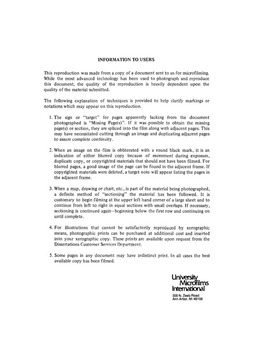| dc.contributor.author | Elikai, Faramarz, | en_US |
| dc.date.accessioned | 2013-08-16T12:28:56Z | |
| dc.date.available | 2013-08-16T12:28:56Z | |
| dc.date.issued | 1983 | en_US |
| dc.identifier.uri | https://hdl.handle.net/11244/5157 | |
| dc.description.abstract | This dissertation examines the usefulness of current-value data, as opposed to historical-cost data, in the context of a potential user's actual decision. The respondents in the experiment were required to render their judgments on a potential investment based solely on historical-cost or current-value data. A sample of three groups of potential users of financial statements (auditors, bankers and financial analysts) were selected and the subjects were asked to evaluate the financial statements of four hypothetical investment firms based on historical-cost or current-value and rank the firms based on each firm's attractiveness. The firms trade futures contracts of commodities and are distinguished by their proportion of correct decisions (buying long, selling short or hold); their proportion of correct decisions are predetermined and are based on fixed assigned probabilities for each firm. The results of my study indicate that there are no significant differences among the subjects' investment decisions based on historical-cost data as opposed to current-value data and both methods are equally effective in making this simple investment decision. | en_US |
| dc.format.extent | ix, 132 leaves : | en_US |
| dc.subject | Business Administration, General. | en_US |
| dc.title | An investigation of the impact of current-value versus historical-cost data on users' simple economic decisions. | en_US |
| dc.type | Thesis | en_US |
| dc.thesis.degree | Ph.D. | en_US |
| dc.thesis.degreeDiscipline | Michael F. Price College of Business | en_US |
| dc.note | Source: Dissertation Abstracts International, Volume: 44-06, Section: A, page: 1855. | en_US |
| ou.identifier | (UMI)AAI8324885 | en_US |
| ou.group | Michael F. Price College of Business | |
